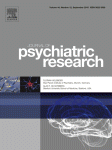 The Journal of Psychiatric Research is retracting a 2010 paper claiming to show a relationship between quetiapine (Seroquel) and certain lab tests and brain scans, after it turns out the brain images were either unreliable or invalid.
The Journal of Psychiatric Research is retracting a 2010 paper claiming to show a relationship between quetiapine (Seroquel) and certain lab tests and brain scans, after it turns out the brain images were either unreliable or invalid.
Here’s the notice for “Relationship between dopamine D2 receptor occupancy, clinical response, and drug and monoamine metabolites levels in plasma and cerebrospinal fluid. A pilot study in patients suffering from first-episode schizophrenia treated with quetiapine”: Continue reading Journal retracts antipsychotic study when all subjects’ PET scans turn out to be unreliable or invalid








